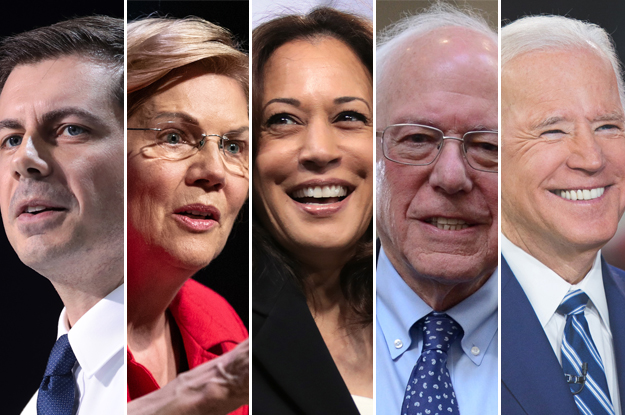As Democratic presidential candidates take the debate stage for the first time on June 26-27, the setting of Miami will likely yield a welcome novelty: questions about the U.S. relationship with Latin America and the Caribbean.
The temptation will be strong to ask red-meat questions about Cuba and Venezuela narrowly cast to a South Florida audience.
Instead, the moderators should ask for a broader vision, one that would also tackle the two overarching challenges facing the Americas today—migration and corruption. Two issues, sadly, on which the Trump Administration has singularly failed to lead.
People are on the move in the Americas with real consequences for the United States, including complicating our ability to manage migration into the United States. The number of Central American migrants seeking U.S. asylum has spiked even as overall migration from Latin America to the United States is on the decline. At the same time, more than 4 million Venezuelans have fled that country seeking refuge from the willful collapse of that country executed by the corrupt and criminal regime of Nicolás Maduro.
In the face of these dual phenomena, the Trump Administration has chosen to stoke emotions in hopes of electoral gain rather than to craft and execute strategies to advance core U.S. national interests.
Time and again, Mexico and Mexicans have been scapegoated for the fate of those left behind by America’s middle-class economic stagnation and unsettled by demographic change. Venezuelan-Americans desperate for a better future for their families and for their beloved country have been fed “all options are on the table” rhetoric and a series of wishful, tactical moves in search of a coherent strategy.
Recent years have seen the eruption of numerous corruption scandals across the Americas, leading to a broad popular clamor for greater transparency and accountability. Yet the Trump Administration cannot and has not led in this area. It cannot because it lacks the moral authority; it has not, choosing instead to turn its back on anti-corruption efforts in Guatemala and back a democratically dubious president in Honduras. Trump has embraced right-wing demagogues like Brazil’s Jair Bolsonaro while attacking partners like Mexico and Colombia.
On Trump’s watch, China and Russia have also made major advances in the Americas. After eight years in which no country in the Americas changed its diplomatic recognition of Taiwan for recognition of China, three countries (Panama, El Salvador, and the Dominican Republic) have done so under Trump. Russia has brazenly deployed troops to Venezuela and is eagerly filling the void created by a return to a fatally flawed U.S. Cuba policy.
By undermining global action on climate change, Trump has turned his back on one of the world’s most climate-sensitive regions, increasing migratory pressures in Central America and imperiling fragile countries across the Caribbean Basin.
Against this backdrop, and because no region has a greater day-to-day impact on the United States and its interests, it is incumbent on Democrats seeking the White House to articulate a vision for how the United States can work in effective partnership to advance U.S. national interests in the Americas.
A vision that starts from a recognition that the Americas are our home and must be treated as such. One that understands that the single most significant thing the United States can do to reset relations in the Americas is to rewrite our migration laws to reflect our values and interests.
A vision that prioritizes democracy, human rights, and the rule of law. One that understands that it is short-sighted and counter-productive to turn a blind eye to authoritarian behavior in hopes of advancing security interests or as purported “stability plays.” One that recognizes the United States’ complicated legacy in the Americas, but does not use it as an excuse to turn a blind eye to anti-democratic behavior from the left or the right in the Americas.
A vision that understands that despite the challenges presented, the Americas are replete with opportunities. Opportunities that can be secured (and challenges that can be overcome) if the United States sees itself as a partner and not as a paternalistic owner. And acts accordingly. Opportunities the United States will only secure if it competes with China and others rather than ceding space to them across the region.
A vision that neither recoils from nor seeks to impede the globalization of the Americas, but rather appreciates the opportunities to leverage ties with regional partners on vital issues, including migration mitigations; defense of democracy, human rights, and the rule of law; climate change; and securing a renewable energy future—in the region and well beyond.
We need to hear how a Democratic president will help the people of Venezuela and Cuba freely determine their respective futures. But we also need to hear how she or he will lead in the whole hemisphere – and start repairing the damage of recent years.
—
Dan Restrepo served as Special Assistant to the President for Western Hemisphere Affairs from 2009 to 2012.







